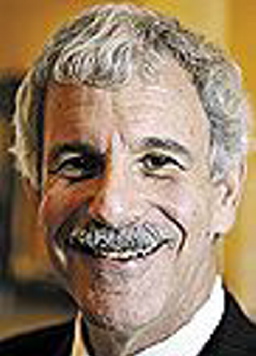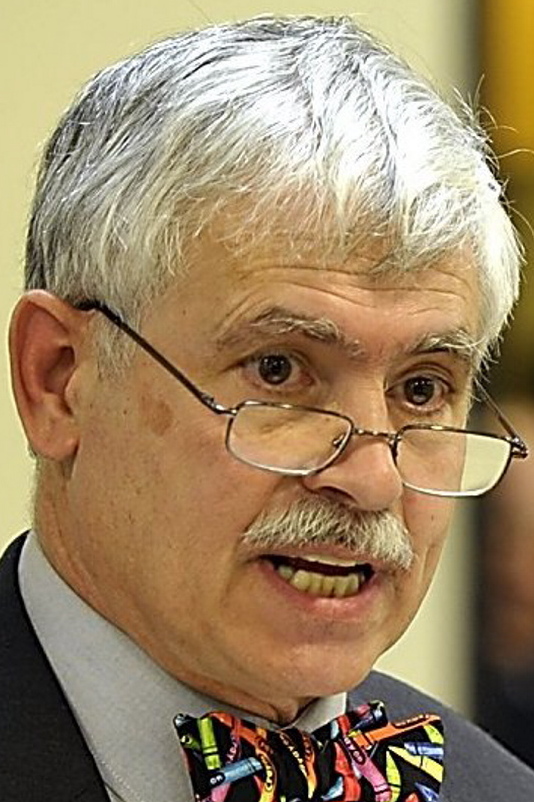Two moderate Republican state senators are gearing up for another run at expanding Medicaid, this time tying the effort to Maine’s heroin epidemic. The uninsured have a difficult time entering substance abuse treatment programs, and Medicaid expansion would greatly increase options for those with newly acquired health benefits, they say.
“The landscape has changed,” said Sen. Roger Katz, R-Augusta. “Everyone realizes that we need to be putting more money into treatment resources. Why not have the federal government pay for most of it?”
Substance abuse counselors would no longer have to try to squeeze a limited number of uninsured patients into programs, because they would instead be reimbursed for treating patients, Katz said.
Heroin overdose deaths in Maine surged from seven in 2009 to 57 in 2014, and the number of people seeking treatment for opiate abuse jumped from 1,115 in 2010 to 3,463 in 2014.
Katz said he hopes a new coalition of lawmakers concerned about the heroin crisis will rally around a modified version of Medicaid expansion. Katz is collaborating with Sen. Thomas Saviello, R-Wilton, on the effort.
“Heroin is a terrible epidemic,” Saviello said. “Just give me a chance to present my case.”
Since 2013, efforts by Democrats and some moderate Republicans to expand Medicaid to more than 60,000 Mainers have been opposed by most Republicans lawmakers and vetoed by Gov. Paul LePage, a staunch opponent of expansion. Under LePage, Maine has tightened eligibility for MaineCare, the state’s name for Medicaid, reducing the number of Mainers who can obtain the free health insurance. The number of MaineCare patients has declined from 355,000 in 2011 to 287,000 this year, due to tightening eligibility requirements and the improved economy.
Saviello and Katz have at times been at odds with LePage on various issues.
Saviello is taking the lead on next year’s compromise expansion effort, with a placeholder bill that was carried over from the last session. Saviello said the bill, which was not formally considered in 2015 but introduced so it could be considered in the 2016 session, would be similar to compromise plans approved in other states with divided government or under Republican control.
A compromise bill introduced by Katz and Saviello in 2014 failed by two votes to reach the two-thirds majority needed to override a LePage veto.
SAVIELLO: ‘THE PUBLIC IS ON MY SIDE’
Saviello said next year’s bill at this point is just a shell, and he hopes to release details of how the expansion would work by mid-January. He acknowledged it’s an uphill political battle.
“I don’t mind being the underdog,” Saviello said. “I believe the public is on my side.”
Broadly speaking, the legislation would seek a waiver from the federal government that would allow Medicaid expansion funds to be used to help people earning up to 138 percent of the federal poverty limit obtain coverage through the Affordable Care Act’s health insurance marketplace, Saviello said. States that have approved similar plans include Arkansas, New Hampshire, Montana and Iowa. Overall, 31 states have some form of Medicaid expansion.
But Sen. Eric Brakey, R-Auburn, said he’s opposed to Medicaid expansion, and he doesn’t believe a bill to do so would gain much traction in the Legislature.
“A deal like that is dead on arrival,” Brakey said. “There is not enough support for Medicaid expansion.”
Mark Brewer, a political science professor at the University of Maine, said he believes efforts by moderate Republicans and Democrats would face long odds of overcoming a LePage veto, especially in the House, where Republicans tend to be more conservative.
“I have a hard time envisioning there being enough House Republicans coming on board to override a LePage veto,” Brewer said.
Brewer said it might help some Senate Republicans representing moderate districts to support Saviello’s bill, as a way for them to show independence from LePage.
CRITICS SAY IT WOULD COST TOO MUCH
Brakey, like LePage and other Republicans opposed to expansion, says it would cost too much. The federal government pays for 100 percent through 2016, but the federal share gradually declines to 90 percent by 2020. Republicans have argued that they don’t trust that federal support will remain at 90 percent.
New Hampshire lawmakers have said that Medicaid expansion has been a burden on the state budget, according to Brakey. Media reports on how expansion has affected the New Hampshire budget are mixed, but the expansion was not fully implemented until March, so some budget impacts may not be known for several months.
“New Hampshire does not have a good track record on this,” Brakey said. “I don’t think this is a situation we can put ourselves into in Maine.”
State offices were closed on Thursday and Friday for the Christmas holiday, and LePage spokeswoman Adrienne Bennett couldn’t be reached for comment. Bennett did not respond to an email and her cellphone was not accepting messages. The administration typically does not comment on bills that don’t yet have specific language.
Saviello said he hopes to also attract Republican support because the Affordable Care Act’s health insurance marketplace would be the mechanism for the expansion. That means the state would not have to administer the program, which would reduce the burden on the state bureaucracy. Also, those earning between 100 and 138 percent of the poverty limit would have to pay a small monthly premium as opposed to getting health insurance for free.
“If we can get people healthy, they are more likely to be productive members of society,” Saviello said.
Copy the Story Link
Send questions/comments to the editors.





Success. Please wait for the page to reload. If the page does not reload within 5 seconds, please refresh the page.
Enter your email and password to access comments.
Hi, to comment on stories you must . This profile is in addition to your subscription and website login.
Already have a commenting profile? .
Invalid username/password.
Please check your email to confirm and complete your registration.
Only subscribers are eligible to post comments. Please subscribe or login first for digital access. Here’s why.
Use the form below to reset your password. When you've submitted your account email, we will send an email with a reset code.